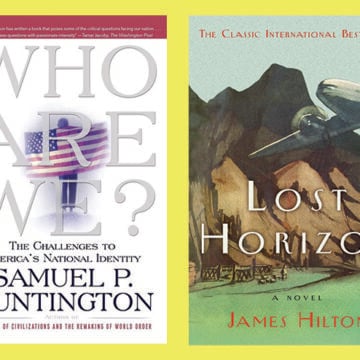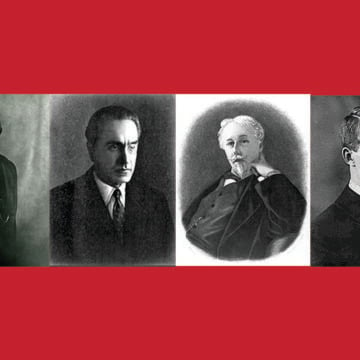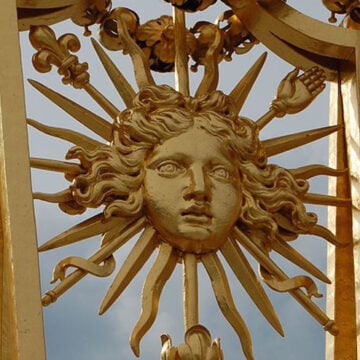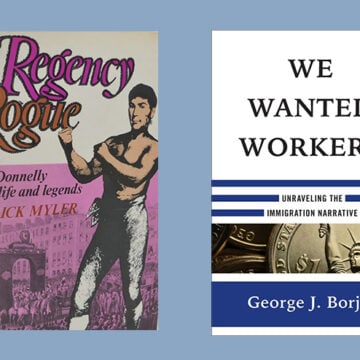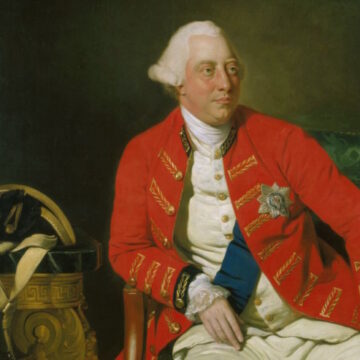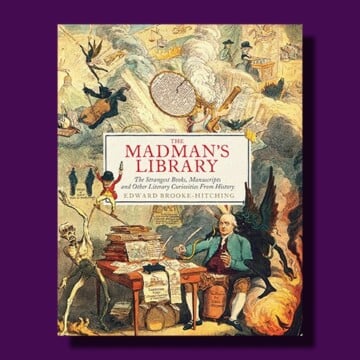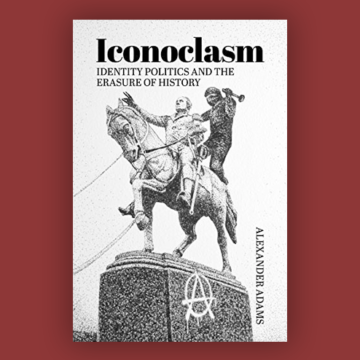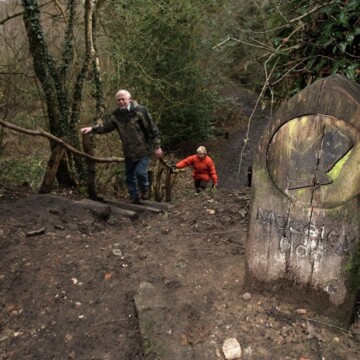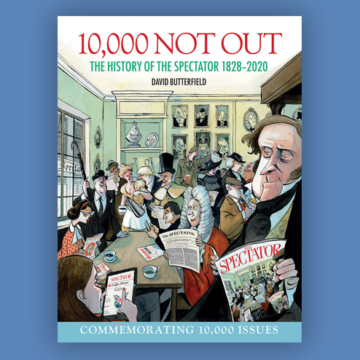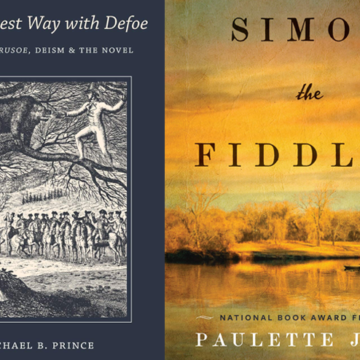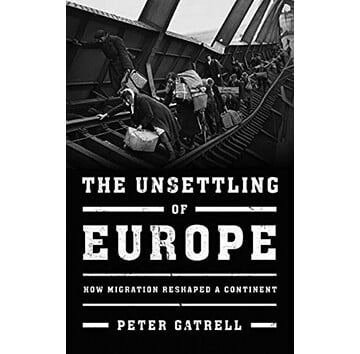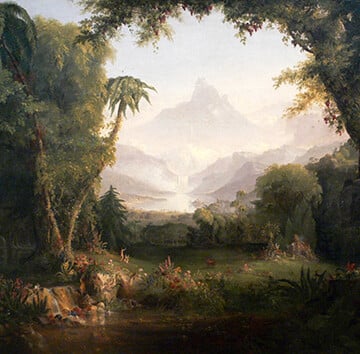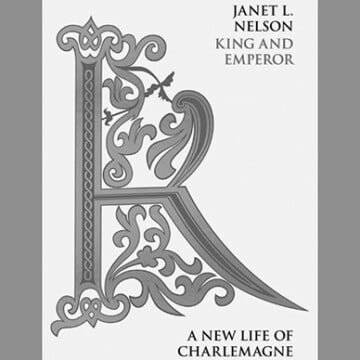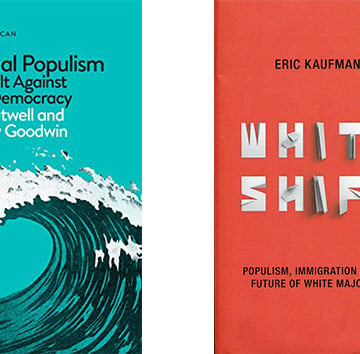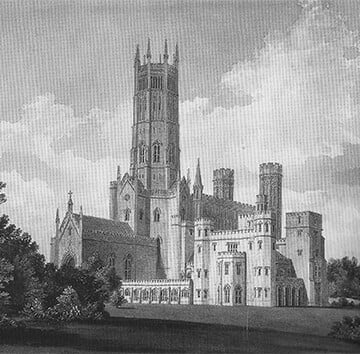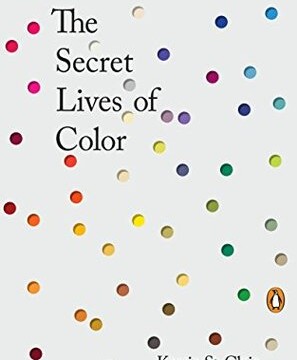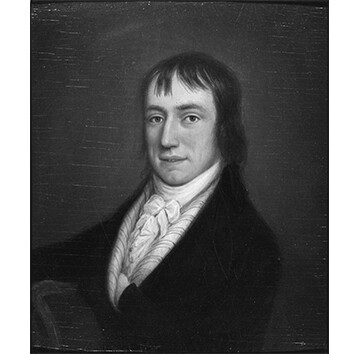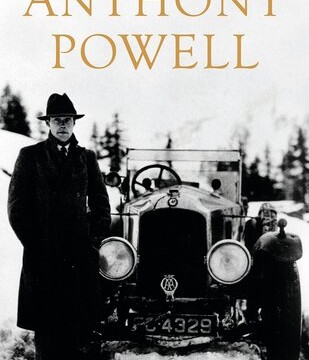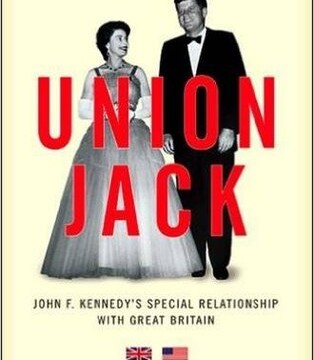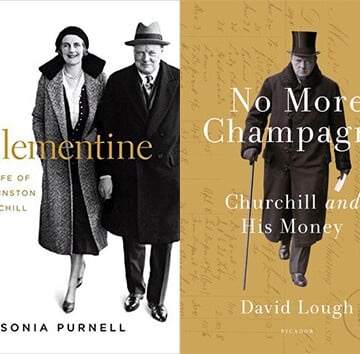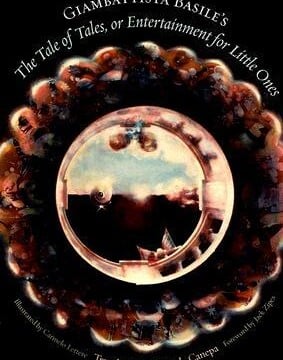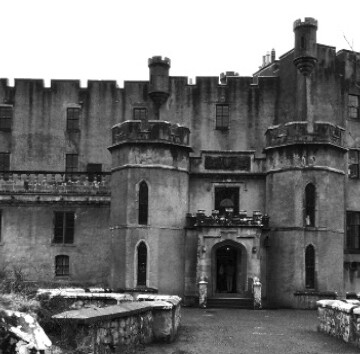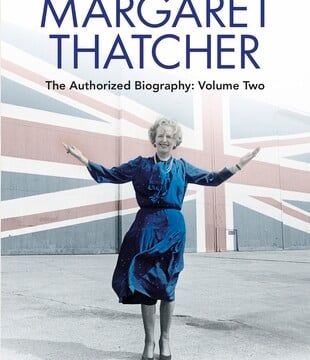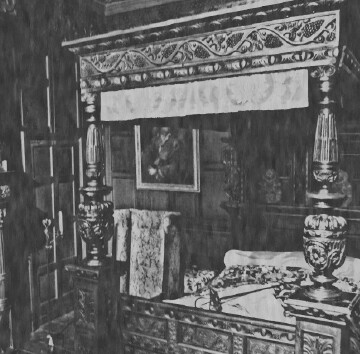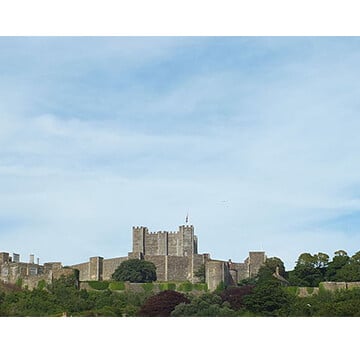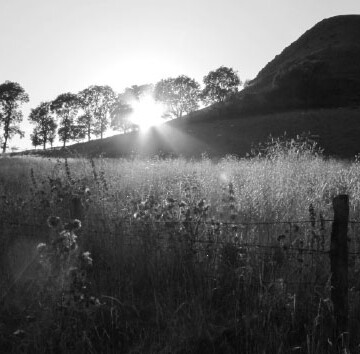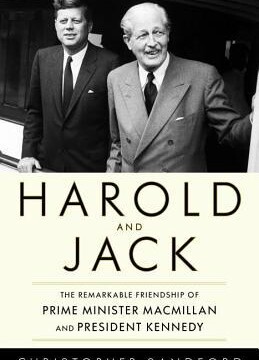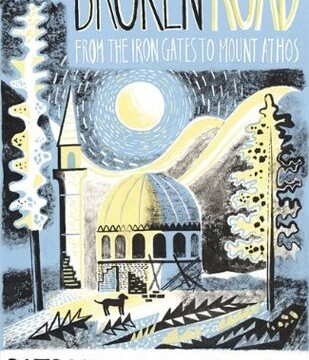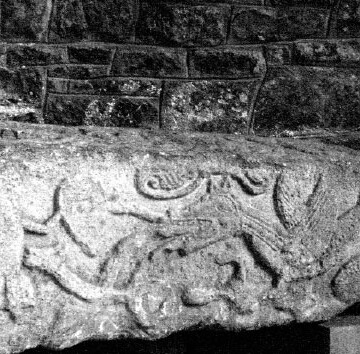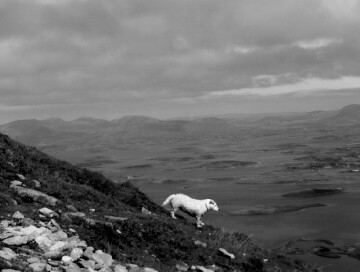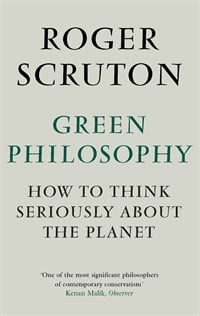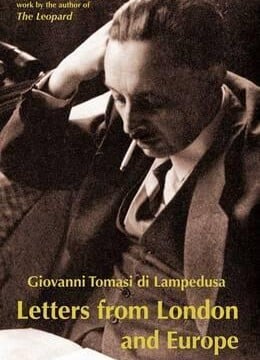Short reviews of Who Are We?, by Samuel P. Huntington, and Lost Horizon, by James Hilton.
Author: Derek Turner (Derek Turner)
What’s in a Naomi?
'Doppelganger' centers around Naomi Klein's personal grievance: Being mistaken for Naomi Wolf.
From Myth to Mob Rule and Back Again
In this discussion of 11 critics of contemporaneity, Neema Parvini is unsentimental about human nature, scornful of pabulum, and armed with mordant wit.
The Empire State of Mind
Nigel Biggar's sophisticated history of British colonialism does not ignore the many benefits reaped by the recipients. His work is relevant to all Western nations, now threatened by faux radicals.
Prince Harming
Spare is a book of emotional spasms, broken down into bite-sized segments of staccato sentences expressing everything from extravagant griefs to lavish hatreds and saccharine love scenes, with every shade of angst, bathos, and exaltation in between.
Freedom’s Penalties
In Obedience Is Freedom, Jacob Phillips illustrates how too much freedom can often mean unhappiness. Men are not made to endlessly self-create.
The Imperial Imperative
In the Shadow of the Gods chronicles the charismatic and influential movers of history, known as emperors.
What We Are Reading: August 2023
Immigration proponents make obvious contradictory claims. They repeat endlessly that recent immigrants are integrating just as fully as earlier immigrants did. Yet they also want to turn the idea that “America is a melting pot” into a prohibited microaggression. If it really is happening, why is it a moral crime to mention it? They lose...
Remembering Enoch Powell
Excoriated as "racist to his bones" for speaking the truth about Britain's emerging immigration crisis, Enoch Powell and his "Rivers of Blood" speech continue to divide to this day.
What We Are Reading: May 2023
Short reviews of Pevsner's Architectural Glossary, by Nikolaus Pevsner, and Memoirs of Prince Alexy Haimatoff, by Thomas Jefferson Hogg.
What We Are Reading: November 2022
Short reviews of The Fox in the Attic, by Richard Hughes, and Boke Named the Gouernour, by Sir Thomas Elyot.
Books in Brief: September 2022
Short reviews of Whatever Happened to Tradition, by Tim Stanley, and The Case for Patriarchy, by Timothy J. Gordon.
The Goodness of King George
In The Last King of America, Andrew Roberts shows George III to be a much better man and king than the caricature presented by propagandists on both sides of the Atlantic.
Bibliotheca of the Bizarre
The Madman’s Library: The Strangest Books, Manuscripts and Other Literary Curiosities From History by Edward Brooke-Hitching Chronicle Books 256 pp., $29.95 Books are the “emblem of civilization,” Edward Brooke-Hitching writes in a new book that explores the strange history of the medium. The earliest books were used to establish and uphold administrative, legal, and taxation...
From Hobbits to H-bombs
Britain at Bay: The Epic Story of the Second World War, 1938–1941 by Alan Allport Knopf 608 pp., $35.00 “The Second World War,” says Britain at Bay’s flyleaf, “was the defining experience of modern British history. It is our founding myth, our Iliad.” It is also the inspiration for a continued outpouring of national self-congratulation,...
Monumental Follies
Iconoclasm, Identity Politics and the Erasure of History by Alexander Adams Societas 180 pp., $29.90 The ill-starred year of COVID saw another, more localized, virus—an outbreak of attacks on public monuments in several countries, particularly in the United States and Britain. While this sickness presents itself as a skin-disease, only scarring symbols, its virulency attests...
Haunts of Hobbits
The Worlds of J.R.R. Tolkien: The Places That Inspired Middle-earth; by John Garth; Princeton University Press; 208 pp., $29.95 Authors have always imagined alternate universes, but in the bulging gazetteer of authorial Erewhons—from the transient town of Abaton via Atlantis, Earthsea, and Hogwarts, to Zyundal in the Isles of Wisdom—none attract such obsessive attention as Tolkien’s...
Books in Brief: A Small Farm Future
A Small Farm Future, by Chris Smaje (Chelsea Green Publishing; 320 pp., $22.50). Chris Smaje is probably the only sociologist-turned-farmer in England. This unusually ecologically-aware agriculturist hopes the sobering effects of COVID-19 will help reset society by restructuring rural areas. Food chains are fragile due to population pressure and economic and ecological challenges, and Smaje says there...
Books in Brief: 10,000 Not Out: The History of The Spectator 1828-2020
10,000 Not Out: The History of The Spectator 1828-2020, by David Butterfield (Unicorn; 224 pp., $30.00). Few journals have cut such a dash through history and culture as The Spectator, and none have lasted as long. David Butterfield has immersed himself to excellent effect in the British magazine’s billion-word digitized archives, paying tribute to a unique institution as...
Innocence and Experience
Humankind; by Rutger Bregman; Little, Brown, and Co.; 480 pp., $30.00 Rutger Bregman’s latest book is about what he calls a “radical idea” that has “long been known to make rulers nervous” and whose apostles will weather “a storm of ridicule.” When we learn that Bregman’s thinking is in radical opposition to Thucydides, Augustine, Machiavelli, Hobbes, Burke,...
Books in Brief
The Shortest Way With Defoe—Robinson Crusoe, Deism, and the Novel, by Michael B. Prince (University of Virginia Press; 350 pp., $69.50). Daniel Defoe’s 1722 novel A Journal of the Plague Year has been much-read recently, for obvious reasons. But of course we remember him chiefly for 1719’s Robinson Crusoe, which was immediately popular for its new, realistic style, and...
Traditionalism Redux
Many intemperate critics have attacked President Trump and his intellectual influences. Benjamin Teitelbaum is not one of them. Cleverer and more fair-minded than most critiques, War for Eternity strives to show that many modern national conservative and populist movements are paradoxically informed by the arcane intellectual current known as traditionalism. At the book’s heart are...
Unending Journeys
Few subjects arouse such atavistic emotions as migration—whether the arrivals come as conquerors or as kin, fleeing ordeals or seeking opportunities. For incomers, migration can represent a dream, a rational choice, an urgent necessity, or a last hope. For recipient countries, it can be an infusion of energy, a reunion, a social challenge, or an...
Can the Greens Change Their Colors?
Greens often make conservatives and populists see red—or Reds. In 2004, Australian politician John Anderson called his country’s Greens “watermelons…green on the outside, and very, very, very red on the inside.” His fruity metaphor has become something of a conservative cliché. It is easy to see why. Green policies are frequently further to the left...
Emperor of Imagination
Charles the Great looms out of the swirling obscurity of post-Roman Europe like the Great Lighthouse of Alexandria, signaling simultaneously radical renewal and an alteration of everything that came before. As Janet Nelson illuminates in her new book, it is impossible to imagine the West without Charlemagne as figurative and literal progenitor. The King of...
Replacement Theories
In 2004, Dutch political scientist Cas Mudde published The Populist Zeitgeist, an attempt to define the growingly important but haphazardly applied concept of “populism.” He had an emotional as well as an academic interest, because “far-right” nationalism had enmeshed his own brother. His influential conclusion was that populism was an unlikable “thin ideology,” almost infinitely...
Displaced Persons
In an age of anti-elite anger, it might seem otiose to publish an academic analysis of aristocratic ideas in Western thought. But as the post-1945 order rattles itself to pieces, it is time to look past its bankrupted beliefs and discredited leaders for other guiding principles—principles based on history instead of ill-defined and naive hopes,...
“Yet Britain Set the World Ablaze . . . ”
David Cannadine launches Victorious Century by quoting Dickens: “It was the best of times, it was the worst of times, it was the age of wisdom, it was the age of foolishness, it was the epoch of belief, it was the epoch of incredulity, it was the season of Light, it was the season of...
The Anatomy of Color
History can be refracted through countless prisms—cultural, economic, environmental, ideological, moral, national, racial, religious—but one has been oddly unexplored, despite being not just obvious but ubiquitous. That prism is color, an element that suffuses every instinct and thought, hues our whole universe. Since hominids evolved opsin genes, we have been able to distinguish between colors...
New Light on the Lakes
We had been dreaming about Andalusia. But plans sometimes must be altered, and so one August evening we found ourselves instead entering into Ulverston, 1,300 miles from Andalusia, and even more distant climatically, culturally, and historically. The Lake District—“England’s Switzerland,” Manchester’s playground, stamping grounds of Wordsworth and Beatrix Potter—is a magnet to millions of tourists,...
Time’s Terpsichorean
Anthony Powell’s million-word, 12-volume novel sequence, A Dance to the Music of Time, is one of the great achievements of postwar English literature, attracting near-universal praise for its subtle and textured evocation of England between World War I and the 1960’s. Powell’s narrator, Nicholas Jenkins, looks on quizzically as a representative cavalcade of 20th-century characters...
The Camelot-Chequers Axis
Christopher Sandford of this parish is not only an adorner of these pages but has also garnered considerable status as a cultural historian. His inquiring eyes range widely, playing over everything from cricket to Kurt Cobain, the Great War to The Great Escape, Conan Doyle to Eric Clapton, and countless other late-19th- and 20th-century Anglospheric...
Unnumbered Years
Ravens over North Berwick Law—could any phrase be more hyperborean? I turned the words over lazily as I watched them 50 feet above, circling and diving on one another, flicking expert wings, commenting incessantly on their sport as they alternately dropped or upheld the thin blue vault. Below the volcanic cone of its Law, the...
Churchill’s Home Front
Winston Churchill is one of the most closely examined (and lionized) of all politicians, and it is accordingly difficult to think of new angles from which to view him and his legacy. But now here are two original and complementary studies coming at once, one profiling his wife, Clementine, the other examining the impressive public...
The Fun of Brexit
Arron Banks looks out proudly and pugnaciously from the cover of Bad Boys of Brexit like a character in a Hogarth engraving, flanking the equally Hogarthian Nigel Farage in a photo taken as Farage faced the globe’s agog media on the auspicious morning of June 24, 2016. The four men pictured—Banks, Farage, Richard Tice, and...
Bizarre Baroque
Like most Western children, I was reared partly on fairy tales. Presented in beautifully illustrated Ladybird books, these were as much a part of my early childhood as the house decor, encouraging me to read and arousing inchoate ideas of an ur-Europe of forlorn beauties, wandering princes, vindictive stepmothers, dangerous fruits, fabulous treasures, ravening beasts,...
An Englishman in His Near Abroad
Samuel Johnson was nearly 64 when he made an unexpected journey. One day in 1773, the internationally renowned lexicographer, essayist, poet, and novelist, who somehow combined being one of the great thinkers of Europe with being a personification of bluff Englishness, suddenly switched his great gaze north, in search of a dream of youth. His...
Iron Lady on Her Mettle
At the end of the first volume of Charles Moore’s lapidary trilogy, we left Mrs. Thatcher standing in St. Paul’s Cathedral in 1982, surrounded by the shades of past national leaders, bathed in public approval and growing global respect as the victor of the Falklands War and standard-bearer for a new and dynamic kind of...
“Pity Poor Bradford”
Bolling Hall has squatted on its plot since the 14th century, hunched against the wind and rain of the West Riding—a North Country architectural essay in dark yellow sandstone looking warily down a steep hillside onto Bradford’s Vale. Old though the building is, the estate’s foundations go deeper than Domesday, when Conqueror companion-in-arms Ilbert de...
Identity and Appearances
Seen from certain angles, Dover Castle looks like the most formidable fortress in the world. Far below, the English Channel is a vision in ozone and aquamarine—the deeps dotted with shipping, the Pas-de-Calais shimmering with memories, the chalky cliffs ant-tunneled with ancient emplacements, a pristine Cross of St. George snapping in the breeze from the...
A Watch in the Marches
“Oh, the wild hills of Wales, the land of old renown, and of wonder . . . ” —George Borrow, Wild Wales I step silent across the flagged floor below weathered slates and beams, sleep-held family breathing behind, the only other sounds the scratching of terriers’ claws as they push past...
Idealists Without Illusions
Like all relationships, the special transatlantic one is in a state of constant flux—warmer or cooler at different times, enhanced by empathy, marred by misunderstandings, riven by reality—but always affected by the personal qualities of the incumbents of 1600 Pennsylvania Avenue and 10 Downing Street. For a short but eventful span between January 1961 and...
An Interwar Odyssey
In 2011, Patrick Leigh Fermor became Patrick Leigh Former, and hundreds of thousands of devotees were doubly bereft. The first loss was the man himself, at 96 an antique in his own right, one of the last links to what feels increasingly like an antediluvian Europe, in which advanced civilization could coexist with medieval color...
Too Quiet Flows the Don
The stone head from the Iron Age glowers out of its glass case as if outraged by the indignity of imprisonment, its relegation from totem to tourist attraction. Not that there are ever many tourists in Doncaster Museum, especially on a unseasonably warm day when the sun-punished town seems full of the grit and stink...
The Most Truly Conservative Person . . .
When Margaret Thatcher died last April, the obsequies were at times almost drowned by vitriolic voices celebrating her demise. There were howls of joy from old enemies, street parties, and a puerile campaign to make the Wizard of Oz song “Ding, Dong, The Witch Is Dead!” the top-selling pop single. (It failed, narrowly.) The extravagant...
Proper Books
Way back in prehistory—1991, or thereabouts—a promising Alabaman author started to register on readers’ radars, thanks to lambent reviews from Northern litterateurs surprised to discover that there was at least one Southron who could not only write, but write as though an amphetamined-up James Joyce was simultaneously charioteering Jonathan Swift, Flannery O’Connor, and John Kennedy...
In the Ultra-West
Drowned drumlins swarmed in the brilliant bay, and ravens like those that plagued Saint Patrick croaked from the chasm below my feet as they rolled lazily half a mile above County Mayo. The ravens’ harsh call was an onomatopoeic reminder of my present eminence, Croagh Patrick, the 2,510-foot cone that dominates the great inlet of...
Where Color Led
Yale University Press promises that Witness to History “will fascinate anyone interested in the great political figures of world history during the twentieth century.” On this book’s back cover, Alistair Horne hails John Wheeler-Bennett as “a gifted historian . . . one of the outstanding, though unsung, certainly unrepeatable Britons of his age.” It is...
Home Truths on Ecology
The relationship between Greens and Conservatives in England is notoriously fractious. Many conservatives see Greens as sub-Marxist semibeatniks, and many Greens see conservatives as military-industrial Morlocks. Yet etymology alone suggests that conservatism and conservationism should shade into each other, just as blue blends into green and back again in the color spectrum. And even if...
The Leopard at Large
Giuseppe Tomasi di Lampedusa was the last prince of his long and languid line, but soon after his death he became one of the first names in 20th-century Italian letters. The Leopard, his 1958 novel about the last days of the Kingdom of the Two Sicilies and the first days of a (theoretically) united Kingdom...
